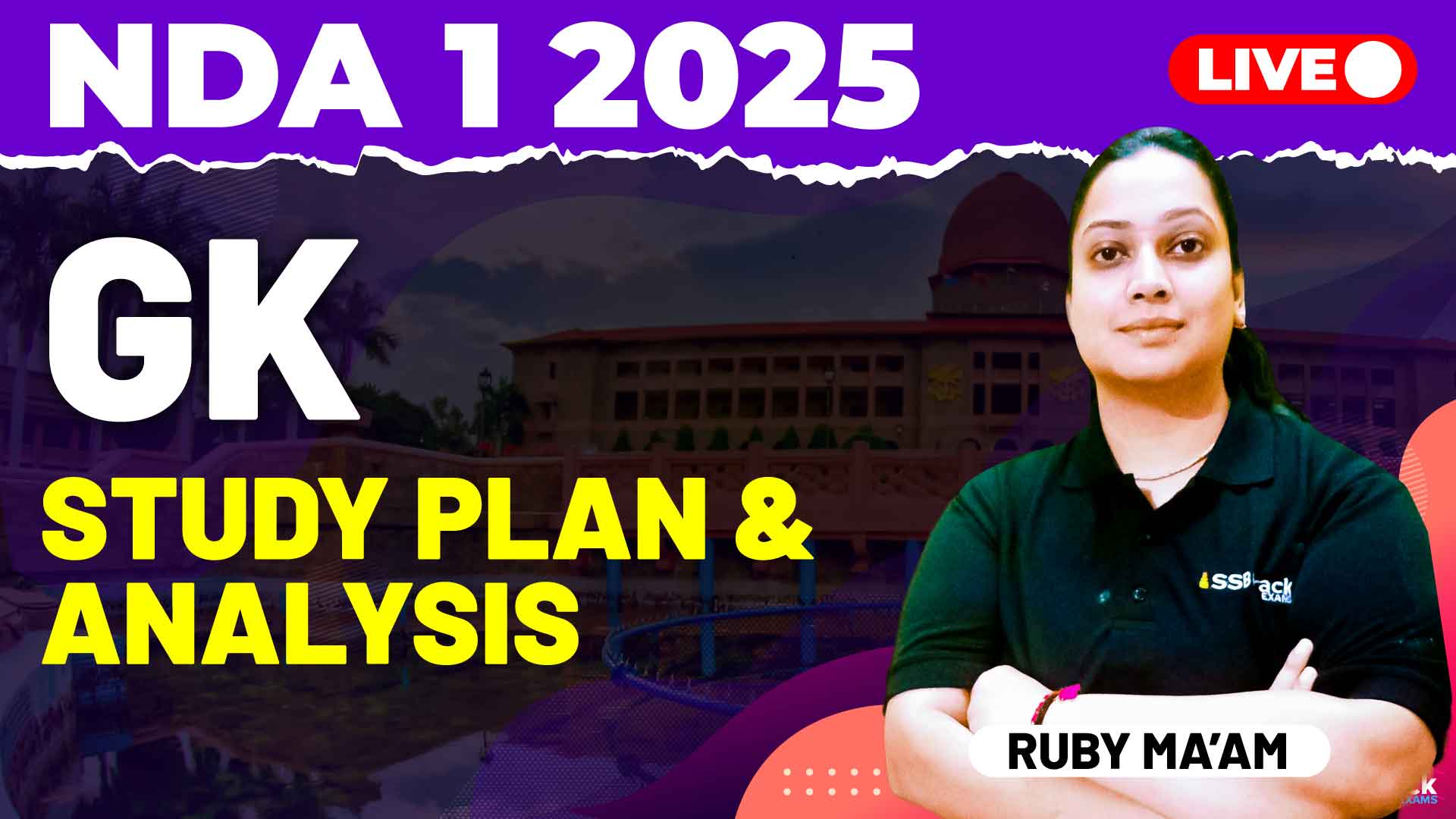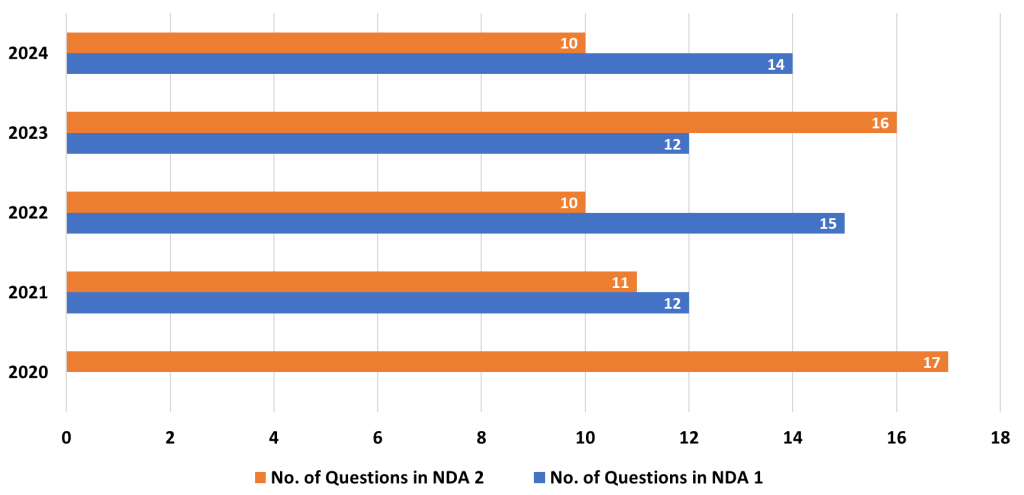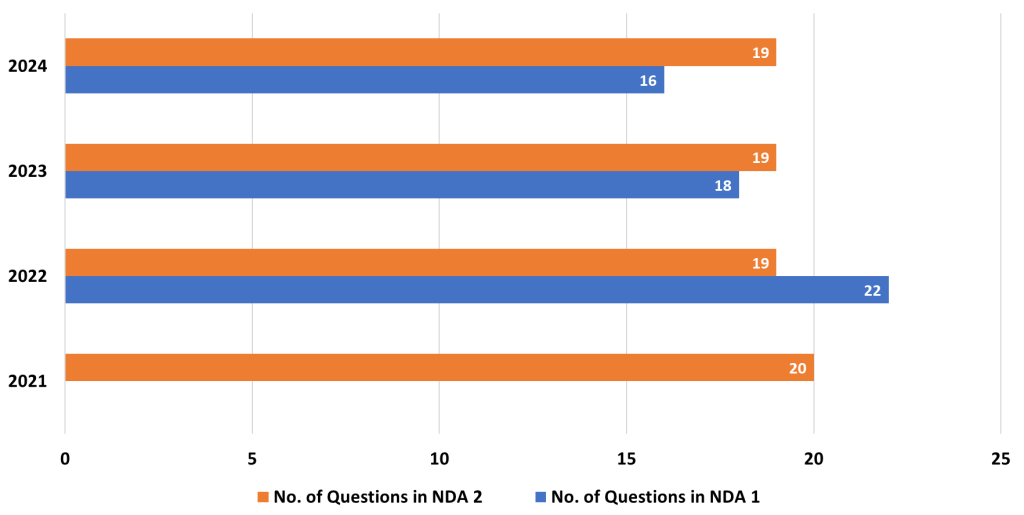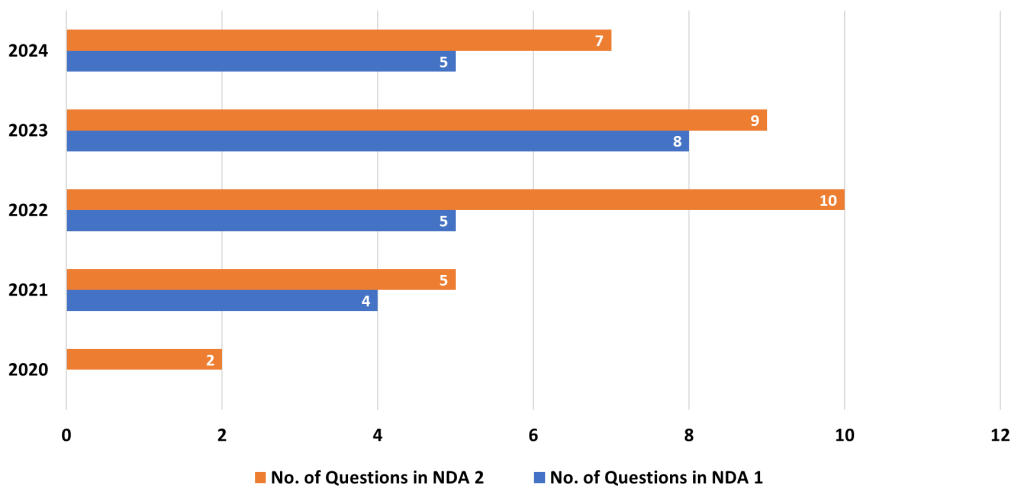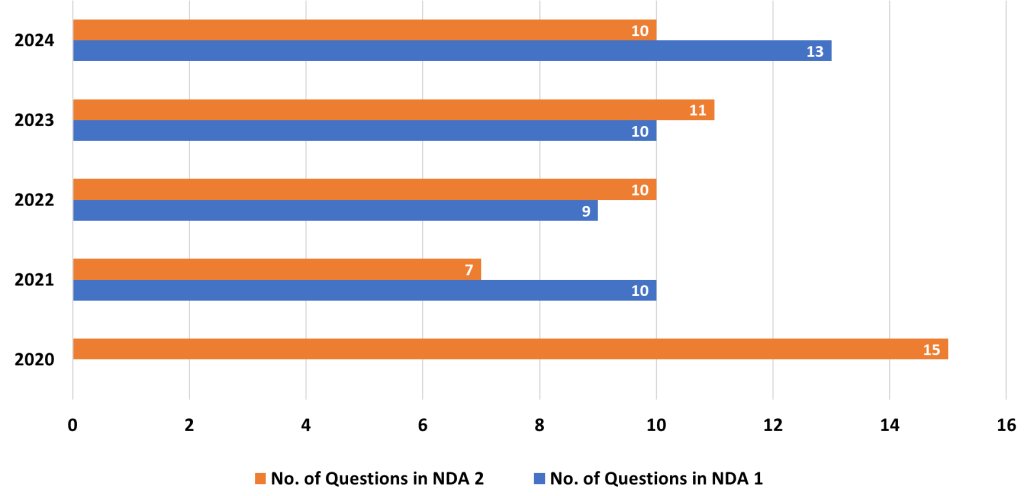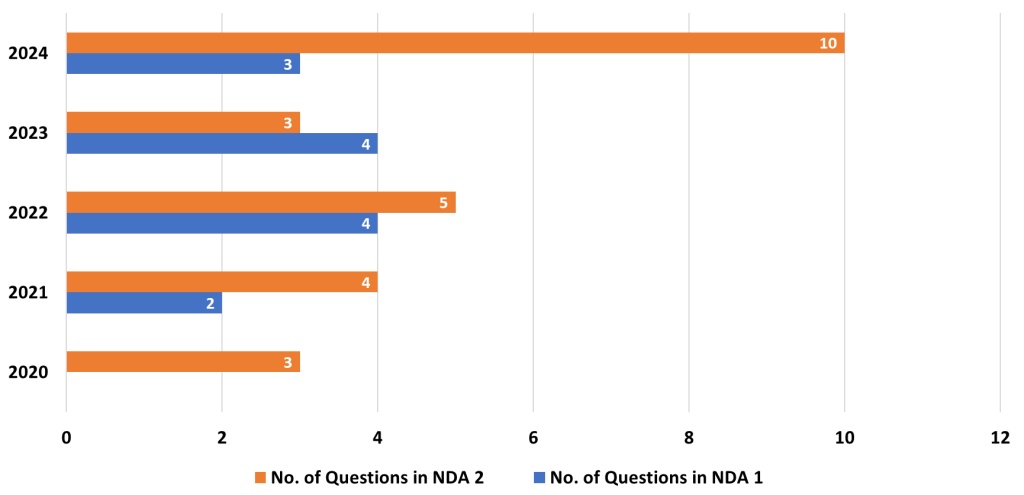National Defence Academy (NDA) exam, conducted by the Union Public Service Commission (UPSC), serves as the gateway to a prestigious career in the Indian Armed Forces. Among its components, the General Knowledge (GK) section of Paper II stands as a crucial segment. This section demands an aspirant’s awareness of various disciplines beyond academics, testing their general awareness, current affairs knowledge, and understanding of India’s cultural and scientific history.
Overview of the GK Section
The GK section encompasses 400 marks and is divided into six broad areas:
- Polity
- Economics
- History, Freedom Movement, etc.
- Geography
- Current Events
To excel in this section, candidates must adopt a well-rounded preparation strategy, understanding the structure and weightage of each topic.
1. History, Freedom Movement, etc. (20-25 questions)
This section has a significant focus on Indian history, from ancient times to the Indian Independence movement. The major areas to concentrate on are:
- Ancient India: Indus Valley Civilization, Vedic Age, Buddhism, and Jainism.
- Medieval India: Delhi Sultanate, Mughal Empire, Vijayanagara Empire.
- Modern India: European invasions, East India Company, British Raj, Indian reform movements.
- Indian Freedom Struggle: Important movements, leaders, and milestones leading to independence.
- Post-Independence India: Formation of states, economic policies, and political developments.
Preparation Tip: Develop a timeline of key events to understand the sequence of historical developments. For the freedom movement, focusing on major leaders and their contributions is essential.
2. Geography (20-25 questions)
Geography questions test your knowledge of physical, political, and economic geography of India and the world. Major topics include:
- Physical Geography: Earth’s structure, climate, atmosphere, ocean currents, and earthquakes.
- Indian Geography: River systems, mountains, plains, monsoon patterns, natural resources.
- World Geography: Continents, oceans, major countries and cities.
- Economic Geography: Agriculture, industries, trade routes, and global economic patterns.
Preparation Tip: Use maps extensively. Understand India’s physical and political geography thoroughly. Class 9 and 10 NCERT Geography books will help in covering most of these topics.
3. Polity
Polity forms a significant portion of the General Studies section in the NDA GAT paper. Questions related to the Constitution, political institutions, governance, and fundamental rights frequently appear in the exam. A good grasp of Polity can help candidates secure crucial marks, pushing their overall score higher.
Since General Studies often has a broad and unpredictable syllabus, concentrating on Polity offers a high return on investment because the syllabus for this section is concise and direct.
3. Current Events (10-15 questions)
The Current Affairs section demands a focus on the latest happenings in:
- National and International Events: Political, economic, and social developments.
- Sports: Major national and international tournaments, awards.
- Science and Technology: Recent developments, space missions, new innovations.
- Awards and Honors: Nobel Prizes, civilian awards like Padma Shri, Bharat Ratna.
- Important Personalities: National and international figures in politics, sports, science, etc.
Defence Current Affairs
Preparation Tip: Keep updated by reading newspapers like The Hindu or Indian Express, and follow monthly current affairs magazines or apps. This section can be mastered with consistent attention to daily news.
Conclusion
The General Knowledge section in the NDA exam is vast, covering a wide array of subjects, but with proper planning and smart study techniques, it can be tackled efficiently. Candidates should prioritize NCERT textbooks for core subjects, supplement their studies with current affairs updates, and practice mock tests regularly to boost confidence. A well-rounded preparation ensures that aspirants are equipped not just for the exam but also for the diverse challenges they will face in their military careers.
